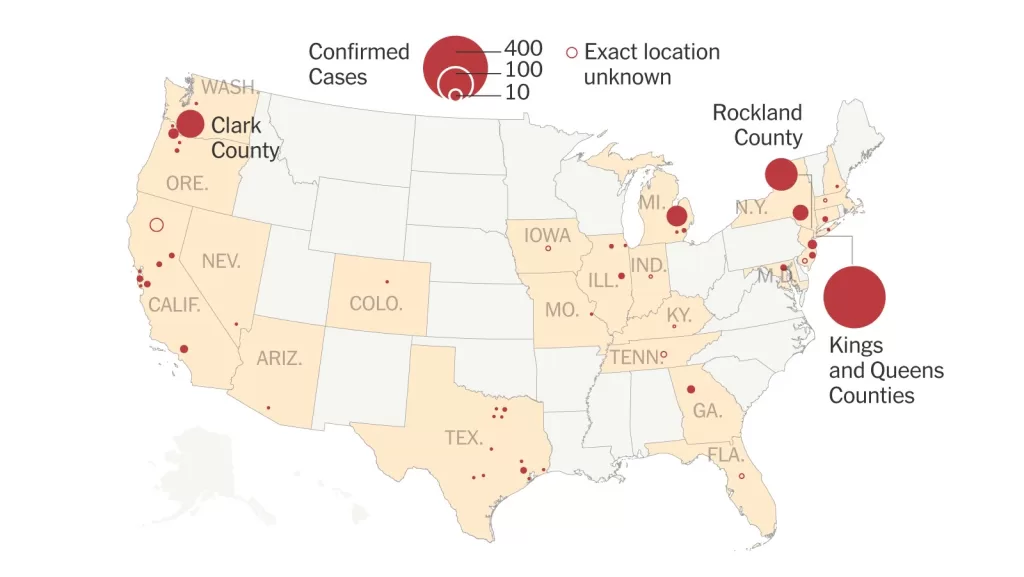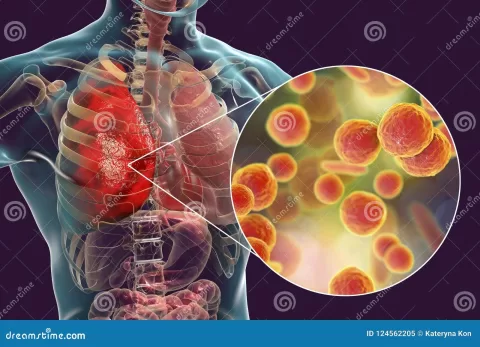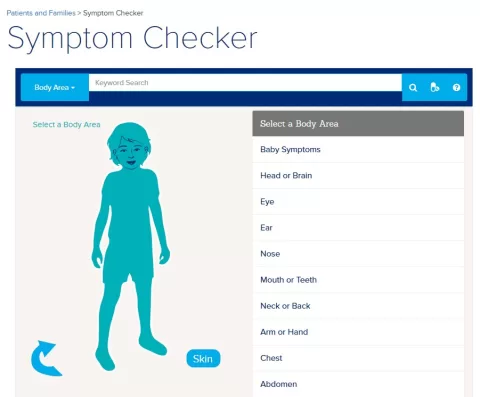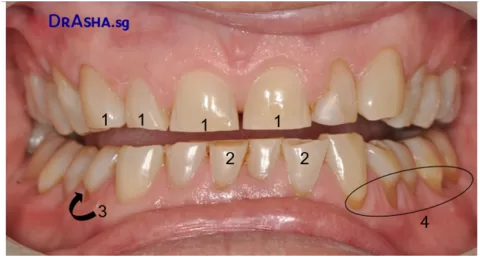The recent measles outbreak has raised alarm bells across the United States, as nearly 380 confirmed cases have been reported in just a few months, marking the steepest rise in infections since 2019. This surge is concerning not only for public health but also due to the influence of individuals like RFK Jr., who promotes unproven remedies claiming effectiveness against this highly contagious disease. Many parents, swayed by anti-vaccine views and misinformation, are turning to high doses of vitamin A, believing it to be a suitable treatment despite medical experts emphasizing its risks over benefits. Health professionals stress that the measles vaccine effectiveness remains crucial, with the MMR vaccine offering up to 97% protection against the virus. As we move through 2025 and combat these rising measles cases, it is imperative to rely on scientific guidance to safeguard our children’s health and well-being.
In light of the ongoing crisis, the situation regarding the spread of measles in the US reveals broader implications for public health policy and community behavior. The wave of infections has ignited discussions about alternative therapies and the reliance on non-conventional preventive measures, such as those suggested by controversial figures. This prevailing climate of skepticism towards vaccination, particularly among those with anti-vaccine inclinations, complicates efforts to curb outbreaks effectively. As we examine the role of vitamin A as a treatment strategy, it becomes clear that public knowledge surrounding immunization and preventive health is more vital than ever. With measles cases on the rise, there is an urgent need to re-establish confidence in established medical practices to ensure the safety of the community.
Understanding the Current Measles Outbreak
The current measles outbreak in the United States has seen an alarming rise in cases, with nearly 380 confirmed cases reported so far this year. This is the highest number of measles cases since 2019, indicating a serious public health concern. The outbreak has primarily affected unvaccinated children in West Texas, where misinformation about vaccine safety has led many parents to forgo the measles, mumps, and rubella (MMR) vaccine. Vaccination is crucial as studies show that two doses of the MMR vaccine have a 97 percent effectiveness rate against measles, making it a vital tool in preventing outbreaks.
The resurgence of measles is particularly troubling not only due to the rising number of cases but also because it highlights the impact of anti-vaccine sentiments that have gained traction in recent years. The misinformation surrounding vaccines, particularly those related to measles, overlooks the decades of success that vaccination campaigns have achieved in nearly eliminating the disease in the U.S. This current outbreak serves as a stark reminder of the importance of awareness and education regarding vaccine effectiveness and the dangers of falling prey to unproven remedies.
The Dangers of RFK Jr.’s Measles Remedy
One significant aspect of the current measles outbreak is the rise of unproven remedies being promoted by influential figures such as Robert F. Kennedy Jr. His assertions about alternative treatments for measles, including high doses of vitamin A, have raised concerns among health professionals. While vitamin A can assist in managing symptoms for individuals who are already infected, it is not a cure and can lead to severe health issues if not properly monitored. Reports have surfaced of unvaccinated children requiring treatment for liver damage due to excessive vitamin A intake, underscoring the risks associated with such unverified treatments.
It’s essential for parents and caregivers to rely on scientifically backed medical advice rather than embracing remedies that lack evidence of effectiveness. The promotion of these untested treatments not only complicates the management of the current outbreak but also undermines the critical role vaccines play in public health. The medical community supports vaccination as the safest and most effective way to prevent measles, and relying on remedies like those suggested by RFK Jr. could have dire consequences for children’s health.
The Role of Vitamin A in Measles Treatment
Vitamin A has demonstrated some potential benefits in managing measles symptoms among individuals who have weakened immune systems, particularly in developing countries, where malnutrition is a significant factor. However, its use is not without risks. High doses of vitamin A can lead to toxicity, resulting in serious health complications. In the context of the current outbreak, many parents are misinformed about the role of vitamin A as a primary treatment for measles, mistakenly believing it can substitute for vaccination or act as a preventive measure.
Medical professionals advise that any use of vitamin A should be under strict guidance from healthcare providers, particularly during a measles outbreak. It is crucial to understand that while vitamin A supplementation might help recovering patients, it cannot replace the established effectiveness of the measles vaccination, which remains the best defense against the virus. Education on proper treatment protocols and the significance of vaccines is essential in combating the misconceptions surrounding vitamin A and other alternative remedies.
Impact of Anti-Vaccine Sentiments on Public Health
The rise in anti-vaccine sentiments has directly contributed to the ongoing measles outbreak in the United States. Many parents who subscribe to these views have chosen not to vaccinate their children, leading to a decline in herd immunity. This decline enables the virus to spread more rapidly among unvaccinated populations. The current outbreak has highlighted a critical public health challenge, as misinformation about vaccines continues to circulate, influencing parental decisions about vaccination.
Addressing these anti-vaccine views requires a concerted effort from health professionals, educators, and communities to provide accurate information about vaccine safety and efficacy. Educational campaigns that highlight the historical success of vaccination in eradicating diseases like measles can help counteract the narratives promoted by anti-vaccine advocates. Collaboration between public health organizations and grassroots movements can play a significant role in restoring confidence in vaccines and ultimately protecting public health from further outbreaks.
Measles Vaccine Effectiveness and Public Health
The measles vaccine is one of the most effective vaccines available, with a documented effectiveness of 97 percent after two doses. This high level of efficacy is crucial in protecting individuals and communities from outbreaks of measles, especially among vulnerable populations, such as young children and those with compromised immune systems. However, misinformation surrounding vaccine safety continues to challenge public health efforts, leading to increased skepticism and reluctance to vaccinate.
To ensure ongoing protection against measles, public health officials emphasize the importance of widespread vaccination. Vaccination campaigns not only protect individuals but also contribute to community immunity, which is vital in preventing outbreaks. As the current situation reveals, a resurgence of cases can quickly occur when vaccination rates decline, making it imperative for families to adhere to recommended vaccination schedules and for healthcare providers to address concerns about vaccine safety head-on.
The Spread of Measles Cases in 2025
As of March 2025, the surge in measles cases across the United States has reached alarming numbers, with 378 confirmed infections reported across 17 states. This unprecedented increase, which notably surpasses figures from previous years, raises concerns about the ability of the healthcare system to manage outbreaks effectively. The situation in Texas, where most cases have emerged, serves as a cautionary tale of how quickly measles can spread among unvaccinated individuals, putting the broader community at risk.
The rapid dissemination of measles cases in 2025 serves as a critical reminder of the vulnerabilities within the U.S. public health system regarding vaccine uptake and misinformation about vaccines. Without a collective effort to enhance education regarding the safety and necessity of vaccinations, the country may continue to see similar outbreaks in the future, severely impacting the health outcomes of children and families.
Navigating Public Health Responses to Measles
The public health response to the current measles outbreak requires a robust approach to surveillance, vaccination efforts, and public education. Health officials are working diligently to track cases and manage outbreaks, particularly in areas heavily affected by misinformation and low vaccination rates. Implementing strategies such as community vaccination events and informational campaigns can help combat the spread of misinformation while encouraging families to vaccinate their children.
Furthermore, collaboration between local health departments, schools, and community organizations is crucial in reinforcing the message about the importance of vaccination. Engaging trusted community leaders to disseminate information can be an effective way to counteract anti-vaccine rhetoric and ensure that accurate knowledge about measles prevention reaches concerned parents. Strengthening public health infrastructure is vital in safeguarding against future outbreaks and ensuring the well-being of all children.
The Risks of Ignoring Vaccination
Families who choose to ignore vaccination recommendations for their children face significant risks, not only for their own children but also for the larger community. When vaccination rates decline, herd immunity weakens, making it easier for diseases like measles to infiltrate and cause outbreaks. The current situation in 2025, where numerous cases are attributed to unvaccinated individuals, highlights these risks and poses pressing questions about the safety and health of vulnerable populations.
Moreover, those who are unable to receive vaccinations due to medical conditions rely on the immunity of others to protect them. The selfish choice to forgo vaccination puts everyone at risk, particularly infants too young to be vaccinated or individuals with compromised immune systems. Addressing the reasons behind vaccine hesitancy and providing accurate, science-based information is essential to enhance community resilience against measles and other preventable illnesses.
The Role of Health Education in Combating Misinformation
Effective health education is pivotal in addressing the rising tide of misinformation regarding vaccines and measles. Public health campaigns must focus on delivering clear, concise, and accurate information about the importance of vaccination, how vaccines work, and the proven effectiveness of the measles vaccine. Utilizing various platforms to disseminate this information—including social media, community workshops, and school programs—can empower parents to make informed decisions about their children’s health.
Additionally, healthcare professionals play a crucial role in combating misinformation by engaging in open dialogues with patients and their families about vaccine safety and efficacy. By addressing concerns, answering questions, and providing evidence-based resources, health providers can build trust and encourage families to adhere to vaccination schedules. A proactive approach in health education can significantly contribute to reversing the trends of vaccine hesitancy and ensuring better health outcomes for children.
Frequently Asked Questions
What is the connection between the RFK Jr. measles remedy and the current measles outbreak?
The RFK Jr. measles remedy refers to unproven treatments promoted by Robert F. Kennedy Jr., which are being used by some parents during the ongoing measles outbreak. This includes high doses of vitamin A, despite the fact that such remedies do not prevent measles infection.
How effective is the measles vaccine compared to RFK Jr.’s remedies during the outbreak?
The measles vaccine, particularly the MMR vaccine, is 97% effective in preventing the virus. In contrast, remedies promoted by RFK Jr. lack scientific backing and do not provide immunity against measles, highlighting the importance of vaccination in managing outbreaks.
Is vitamin A treatment effective for measles management amid the 2025 outbreak?
Vitamin A can help alleviate some symptoms of measles for individuals with compromised immunity, but it does not prevent infection and should be guided by health professionals to avoid potential health risks, especially in the current outbreak context.
How are anti-vaccine views influencing the measles outbreak cases in 2025?
Anti-vaccine views are contributing to the rise in measles cases, as seen in the current outbreak where most cases are among unvaccinated children. This sentiment complicates public health efforts to control the outbreak.
What are the current statistics on measles cases in 2025?
As of early 2025, there have been 378 confirmed cases of measles across 17 states in the U.S., making it the highest number since 2019, with more than 300 cases primarily occurring in unvaccinated individuals in Texas.
What should parents know about measles outbreaks and vaccination?
Parents should be aware that vaccination is the most effective method to prevent measles. During outbreaks, reliance on unproven remedies like those suggested by RFK Jr. can jeopardize children’s health. Getting vaccinated is crucial in stopping the spread of the virus.
What impact have unproven remedies had on treatment during the measles outbreak?
The promotion of unproven remedies has led some parents to avoid vaccinations and rely on ineffective treatments, potentially endangering public health and complicating the efforts of healthcare professionals to manage the outbreak.
What are the risks of using RFK Jr.’s remedies during a measles outbreak?
Using RFK Jr.’s remedies, particularly high doses of vitamin A without professional guidance, poses serious health risks, including potential liver damage, particularly for unvaccinated children who contract measles.
How can communities respond to the measles outbreak effectively?
Communities can respond by promoting vaccination awareness, combating misinformation related to anti-vaccine views, and ensuring that public health strategies focus on vaccination as the primary defense against measles outbreaks.
What measures are in place to track and manage measles outbreaks in 2025?
Health authorities, including the CDC, are actively monitoring measles cases, providing guidance on vaccination campaigns, and tracking outbreak-associated cases to manage and contain the spread of the virus effectively.
| Key Point | Details |
|---|---|
| Current Measles Cases | Nearly 380 cases reported in the US, the highest since 2019. |
| Role of RFK Jr. | Promoting unproven remedies that complicate outbreak management. |
| Vitamin A Usage | Parents are using high doses of vitamin A without scientific backing, risking health complications. |
| Vaccine Effectiveness | MMR vaccine is 97% effective; misconception that natural exposure is better. |
| Outbreak Statistics | 327 cases confirmed in Texas, plus additional cases reported across 17 states. |
| Community Impact | Travel and community exposure raise concerns for further spread of the virus. |
Summary
The recent measles outbreak has alarmingly highlighted the dangers of misinformation surrounding vaccine efficacy. With nearly 380 confirmed cases already in the United States this year, the impact of RFK Jr.’s false remedies has been detrimental. Despite a highly effective measles, mumps, and rubella (MMR) vaccine, some parents are resorting to unproven treatments instead of ensuring their children’s vaccinations. The resurgence of measles, particularly in unvaccinated populations, underscores the necessity for accurate information and adherence to vaccination guidelines to prevent severe health risks.
The content provided on this blog (e.g., symptom descriptions, health tips, or general advice) is for informational purposes only and is not a substitute for professional medical advice, diagnosis, or treatment. Always seek the guidance of your physician or other qualified healthcare provider with any questions you may have regarding a medical condition. Never disregard professional medical advice or delay seeking it because of something you have read on this website. If you believe you may have a medical emergency, call your doctor or emergency services immediately. Reliance on any information provided by this blog is solely at your own risk.








